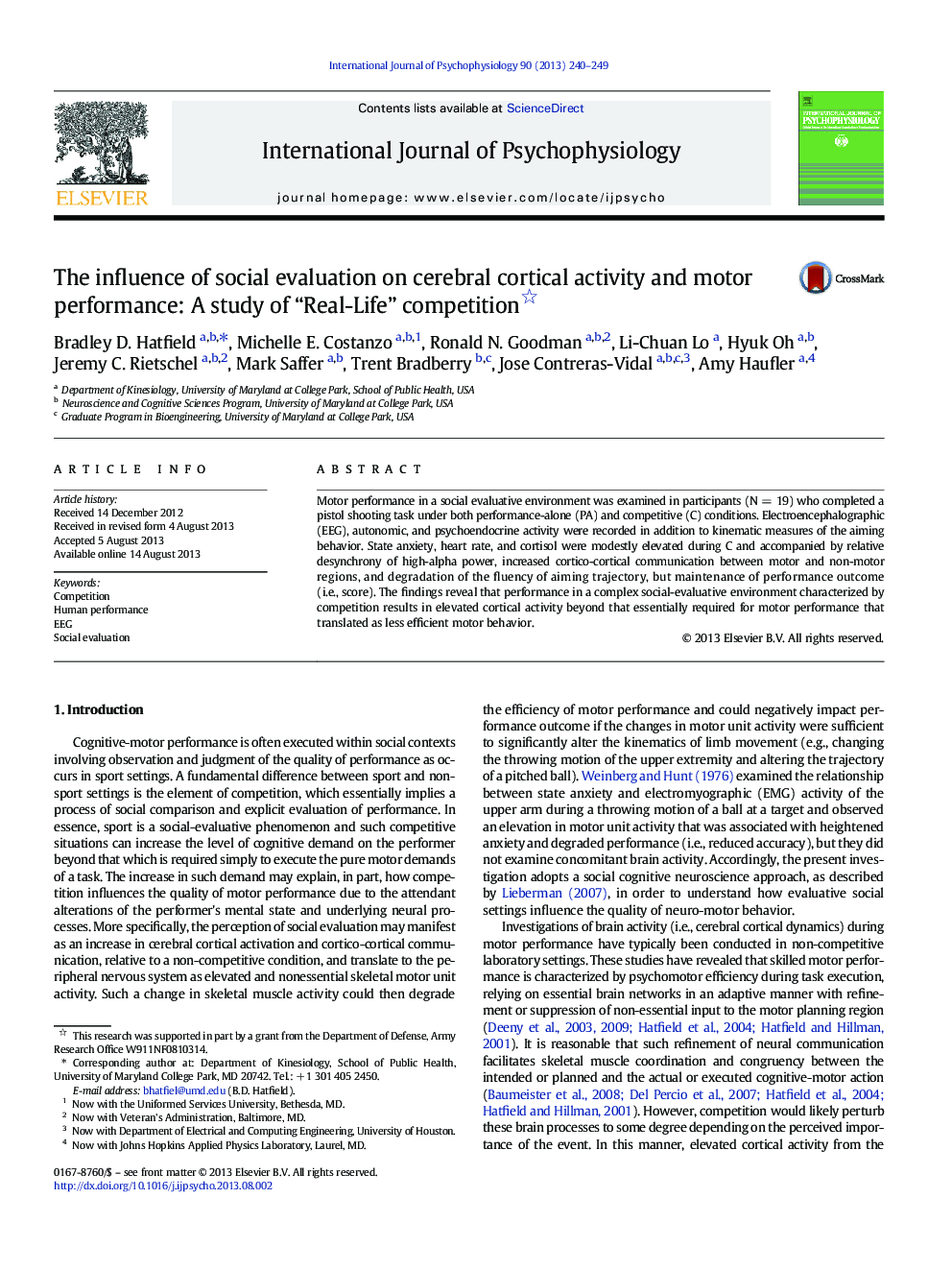| Article ID | Journal | Published Year | Pages | File Type |
|---|---|---|---|---|
| 929758 | International Journal of Psychophysiology | 2013 | 10 Pages |
•Social-evaluation elicited increased cerebral-cortical networking and activation.•These increases were beyond that necessary for the motoric demands of the task.•Such excess translated into greater dysfluency (poorer quality) of motor behavior.
Motor performance in a social evaluative environment was examined in participants (N = 19) who completed a pistol shooting task under both performance-alone (PA) and competitive (C) conditions. Electroencephalographic (EEG), autonomic, and psychoendocrine activity were recorded in addition to kinematic measures of the aiming behavior. State anxiety, heart rate, and cortisol were modestly elevated during C and accompanied by relative desynchrony of high-alpha power, increased cortico-cortical communication between motor and non-motor regions, and degradation of the fluency of aiming trajectory, but maintenance of performance outcome (i.e., score). The findings reveal that performance in a complex social-evaluative environment characterized by competition results in elevated cortical activity beyond that essentially required for motor performance that translated as less efficient motor behavior.
